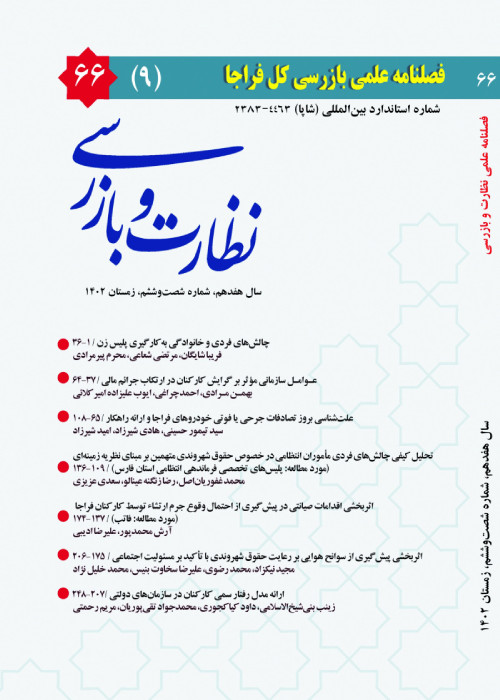A Comparative study of the arbitrary principles in Iranian and French Civil procedure
The course of studies of different systems at different times and places indicates the effort to establish proofing sciences and the attempt to establish positive sciences for peace and humanitarian coexistence. This has always been a concern for jurists and sociologists around the globe. The purpose of this article is to inspire fundamental human principles such as "fairness", which will be beautifully combined with the glitter of humanitarian goodwill in Iran and its increasing role in resolving civil disputes in France under the title of "arbitrary principles".
The research has been studied by descriptive-analytical method by studying and comparing the descriptions and the joint texts of Iran and France and reviewing the judicial records.
The findings show that this principle is based on granting special powers by the two litigants to the judge so that based on their agreement, the judge can, as far as possible, terminate the lawsuit through compromise and prevent the lawsuit from continuing. One of the most important features of this principle is the right to describe and even interpret the subject matter of the lawsuit by the judge in line with the main purpose of the "arbitrary principles" and the practical implementation of the "principle of fairness". In the comparative study, the two arbitration bodies and the dispute resolution councils are similar to the arbitrary principle; because arbitration according to the Iranian Civil Procedure Code is a consensus-based institution and the philosophy of creating dispute resolution councils is to grant peace, reconciliation and the authority to handle some minor disputes and issue a verdict. Therefore, the main study of the arbitrary principles in French proceedings, the powers of the judge in court, analysis of cases of French judicial law and comparison with arbitration and dispute resolution councils of Iranian civil procedure are the main topics of this article and it will be fortified with this main question that if arbitrary principles in the procedure civil litigation can play a positive role in the litigation process and its governing goals.
The results of the study show that the arbitrary principles based on the consent of the parties, plays a very special role in preventing the delay of the trial and the multiplicity of judicial cases and the effort to resolve the case based on justice and fairness which with the emphasize of the role of legislative data in the evolution of the positive sciences can lead to acceptable results and a fair trial in the light of such arrangements can find a new spirit.
- حق عضویت دریافتی صرف حمایت از نشریات عضو و نگهداری، تکمیل و توسعه مگیران میشود.
- پرداخت حق اشتراک و دانلود مقالات اجازه بازنشر آن در سایر رسانههای چاپی و دیجیتال را به کاربر نمیدهد.


